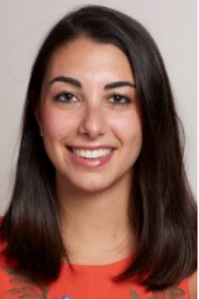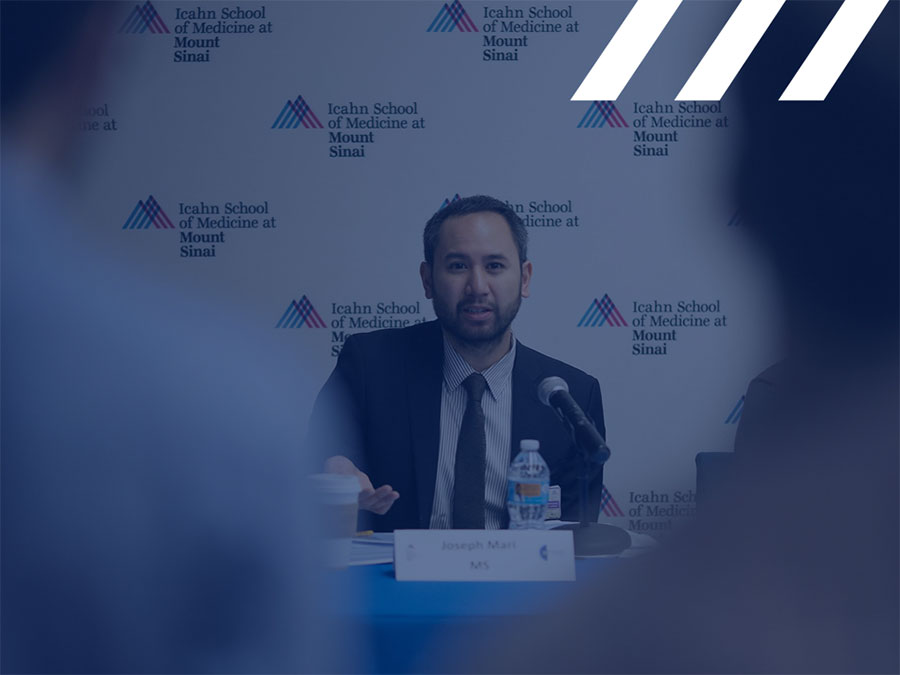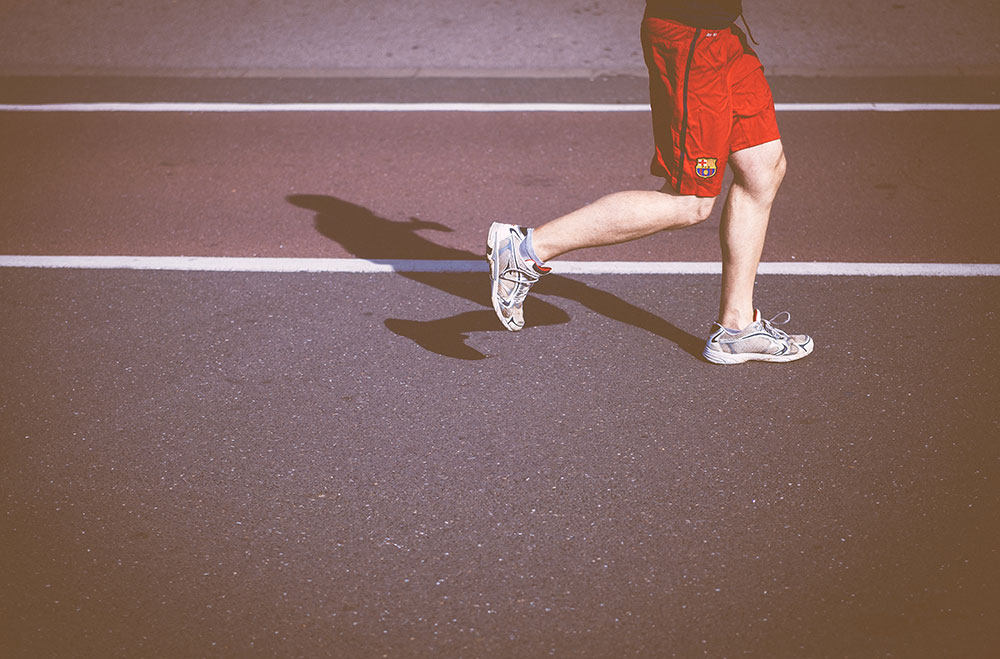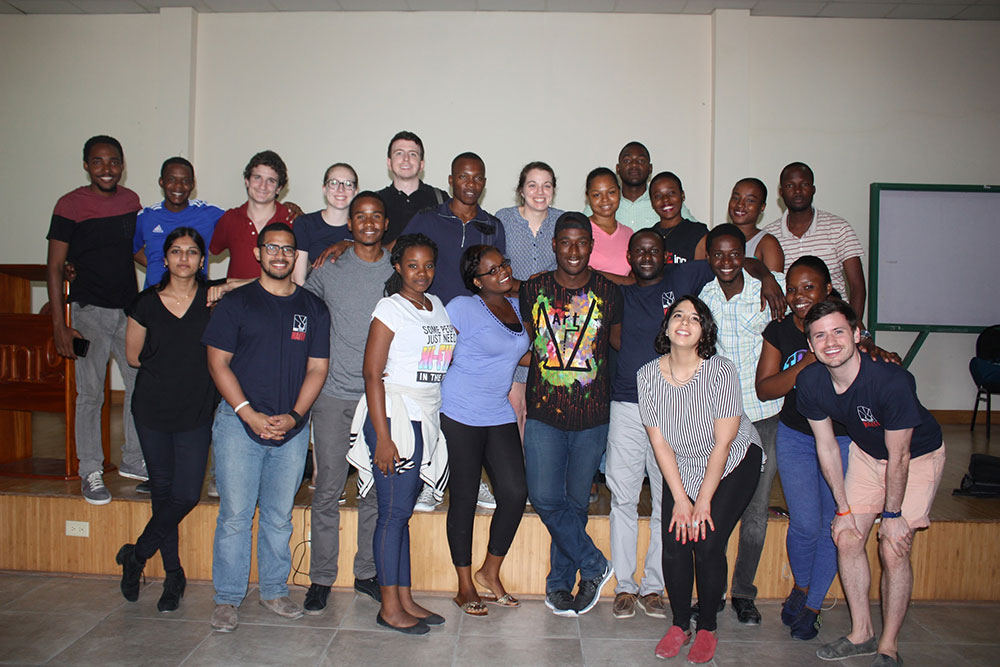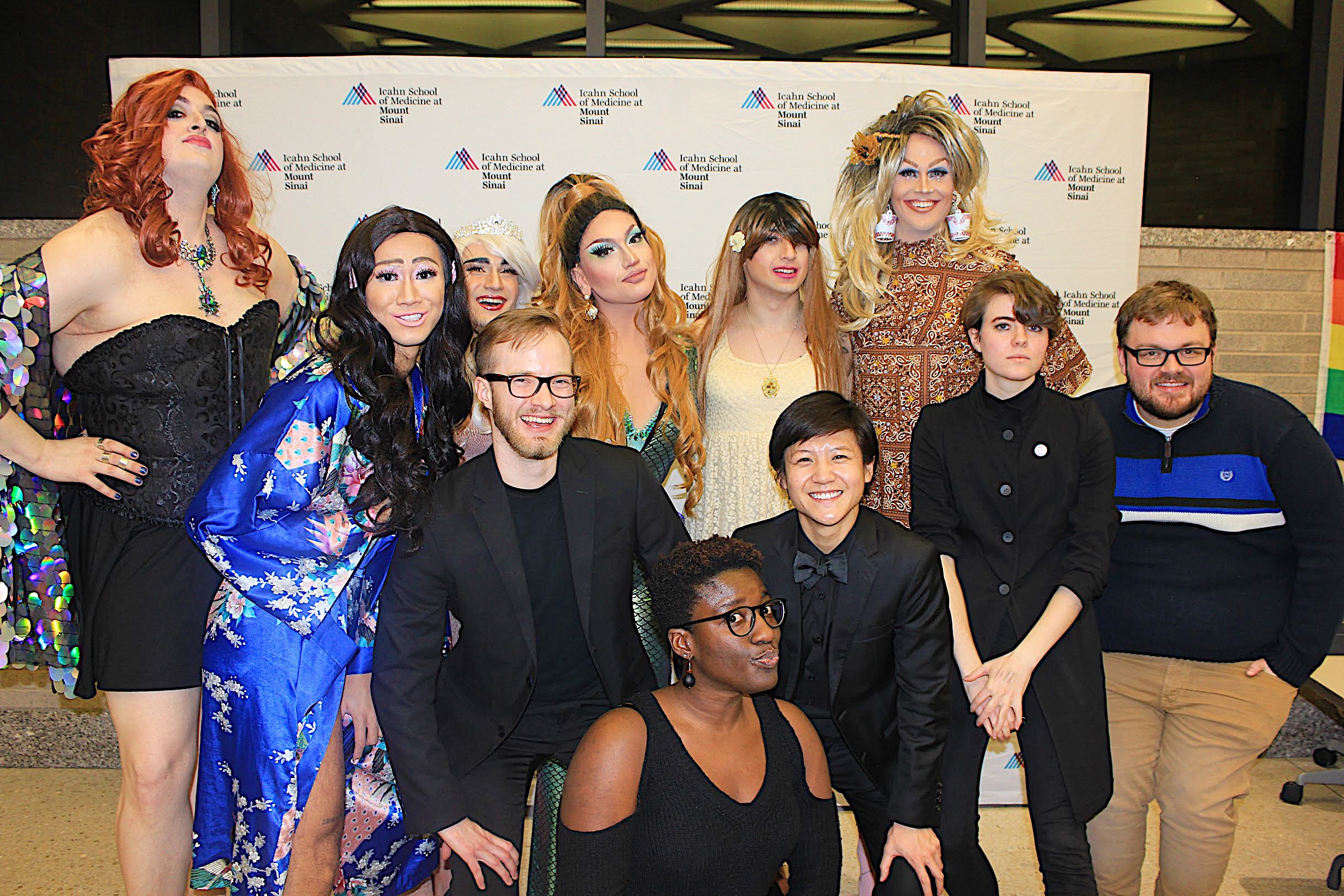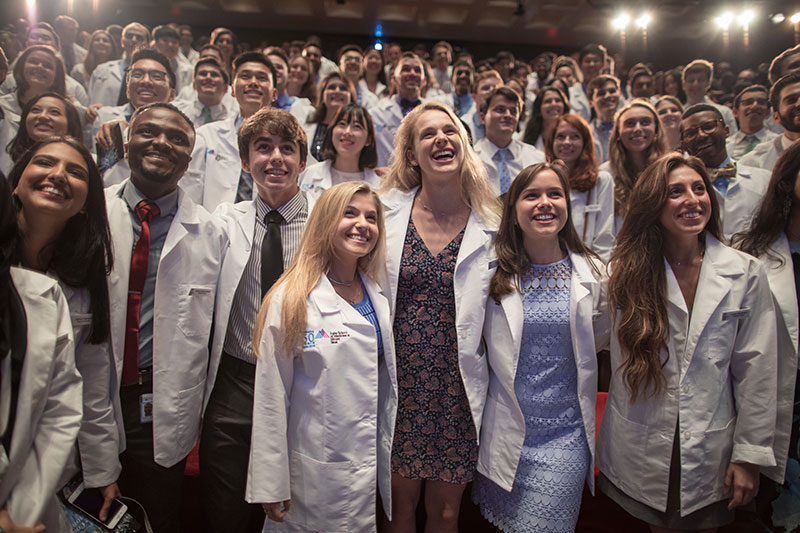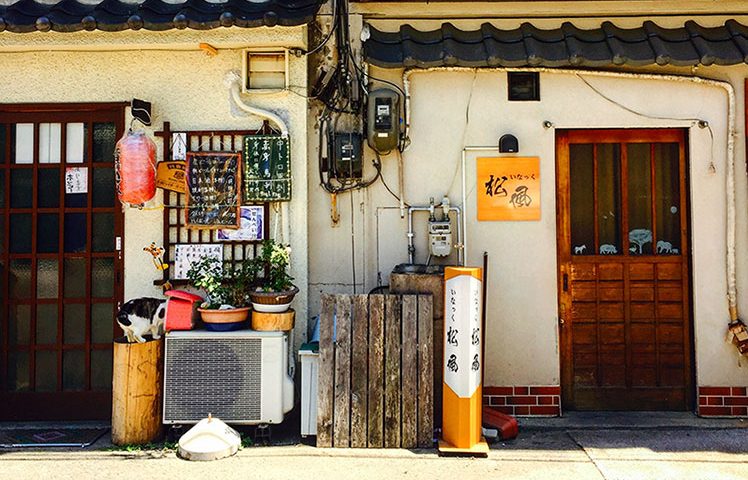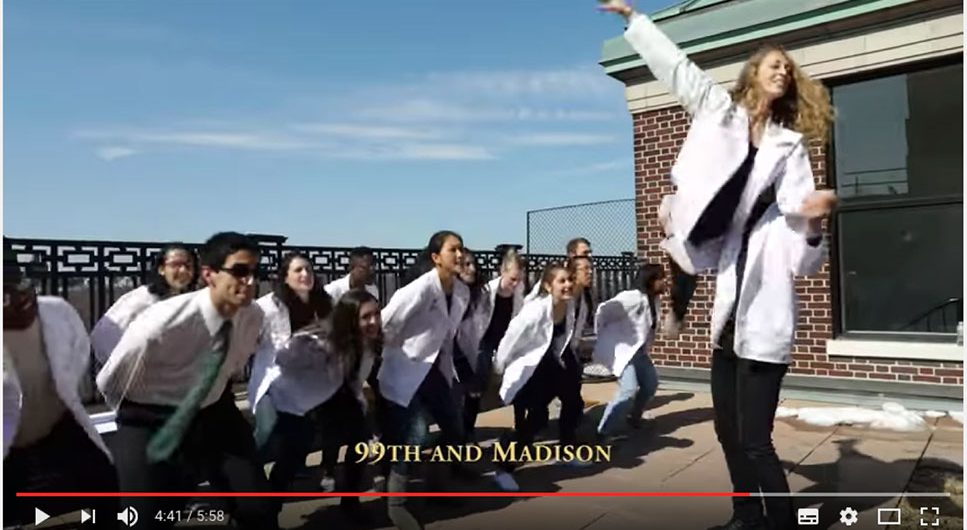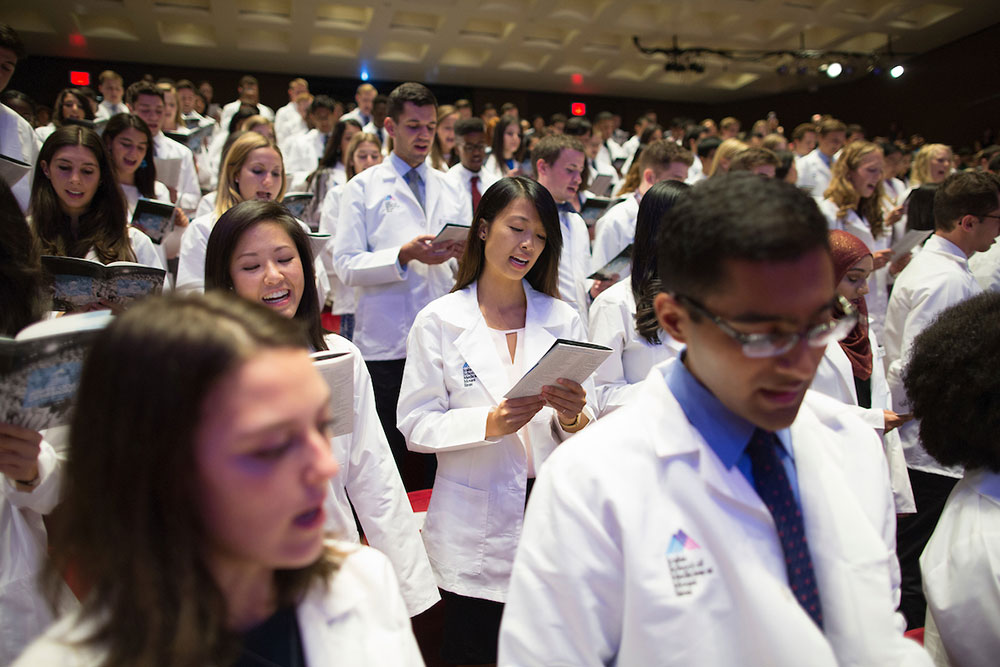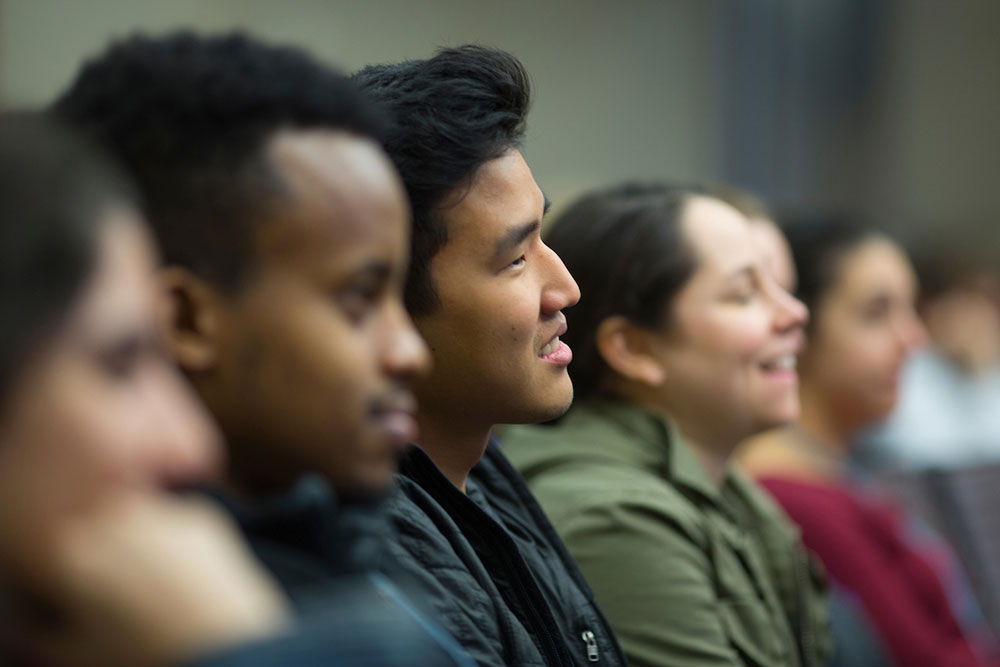As first-year medical students, in 2015 Jessica Rizzuto and Mimi Smith were selected to become co-leaders of the Student Wellness Committee—a student-run organization at the Icahn School of Medicine at Mount Sinai (ISMMS). While the groups’ commitment to every students’ well-being was reinforced through a variety of initiatives and social events created to reduce burnout, Jessica and Mimi felt that there was a significant opportunity to enhance existing resources and make well-being a key priority supported by the Department of Medical Education.
Well-being at the Icahn School of Medicine is not simply surviving the rigors of medical or graduate school, but rather thriving in our everyday activities while reaching for long-term goals. As leaders of the Student Wellness Committee, we were motivated to determine if there were systems in place to enable students to achieve and maintain a holistic view of well-being.
To assess the needs of our peers, we conducted a survey of the student body in spring 2016, asking them to measure their own well-being and the Student Wellness Committee’s initiatives. The survey results were revealing. Students were unaware of the resources available to them through the School and across New York City, and were missing out on many benefits. Seeing that these problems were widespread but possible to fix, we were inspired to expand the Student Wellness Committee into a new program that would take a more holistic approach to well-being, reach the entire student body, and play a central role in the lives of ISMMS students. We held a school-wide competition to come up with the best name, and collectively decided on IcahnBeWell.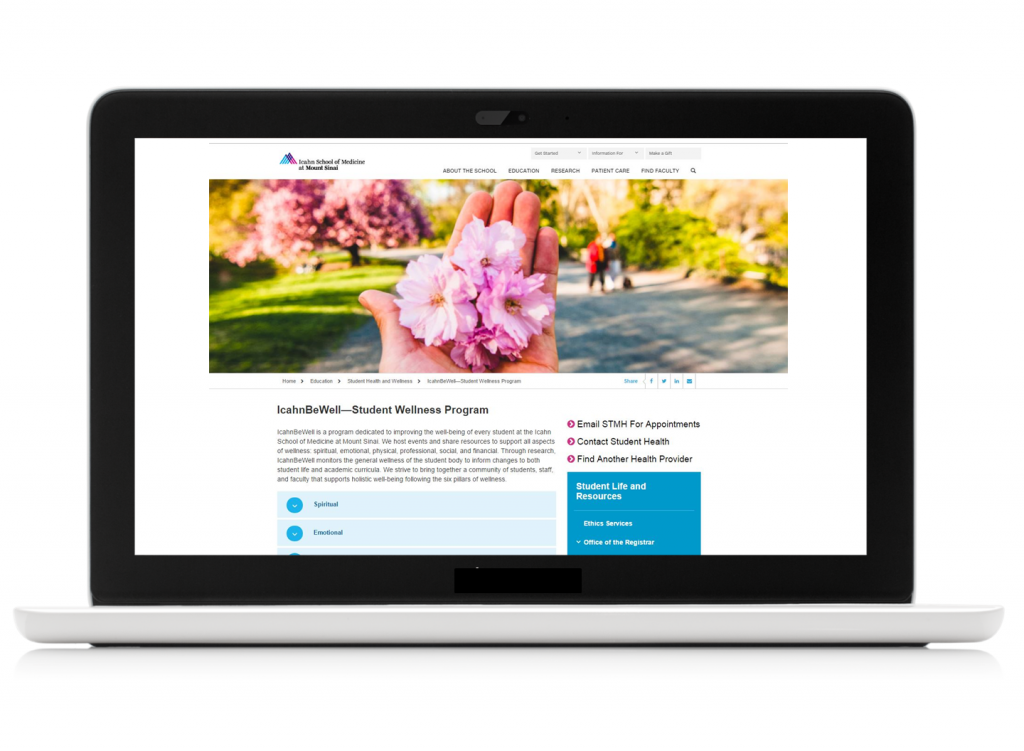
IcahnBeWell’s mission is to improve the well-being of every student at the Icahn School of Medicine at Mount Sinai. In August, we re-launched the IcahnBeWell website to connect ISMMS students with a variety of resources related to six dimensions or “pillars” of wellness:
- Spiritual
- Emotional
- Physical
- Professional
- Social
- Financial
Using the information provided within the Emotional pillar, for example, students can make an appointment with the School’s Student Trainee Mental Health clinic, use a self-screening tool to monitor depression and anxiety, and avail themselves to self-directed modules to reduce stress.
In addition to the website, IcahnBeWell kicked-off this year’s programming with a Wellness Grand Rounds titled “From Surviving to Thriving: Prioritizing the Pursuit of Well-Being in Medical School.” This event featured a presentation by first-year medical student, Jordyn Feingold, MAPP, who presented her model for applying Positive Psychology to strengthen resilience and foster well-being among medical students, trainees, and professionals.
NOW: Sunny Kishore, MD, PhD, MSc kicks-off the Wellness Grand Rounds with a discussion about vulnerability in the #medical environment. pic.twitter.com/1ioR0oIhCm
— Icahn School of Med (@IcahnMountSinai) October 11, 2016
In addition, IcahnBeWell has started a weekly session called “Well-being Wednesdays” that provide students an informal opportunity to discuss vulnerabilities in a safe space with a social worker present to provide support and guidance. Efforts to de-stress and have fun together include an upcoming Winter Carnival and the annual Winter Wellness Week in February 2017.
This fall, the administration began an initiative to address student wellness by creating a Dean’s Task Force on the Learning Environment. The task force is comprised of faculty, students from all degree-granting programs, and a variety of administrators who will address mental health, well-being, and academic culture change.
Several members of IcahnBeWell are representing the student body on the task force and look forward to joining as partners in creating sustainable strategies to support every student at the Icahn School of Medicine.
ABOUT THE AUTHORS
Jessica Rizzuto is a second-year medical student at the Icahn School of Medicine. She completed her B.A. in Sociology and a Masters of Public Policy at the University of Virginia. Before coming to medical school, Jessica pursued her interest in wellness by completing her yoga teacher training abroad. She is interested in preventive care and improving health care access in urban communities.
 Mimi Smith is a second-year medical student at the Icahn School of Medicine. She completed her undergraduate studies at Georgetown University’s School of Foreign Service and worked in management consulting and technology before returning to school for a post-baccalaureate program at The Johns Hopkins University. Her interests include the human microbiome, global nutrition, and infectious diseases.
Mimi Smith is a second-year medical student at the Icahn School of Medicine. She completed her undergraduate studies at Georgetown University’s School of Foreign Service and worked in management consulting and technology before returning to school for a post-baccalaureate program at The Johns Hopkins University. Her interests include the human microbiome, global nutrition, and infectious diseases.


